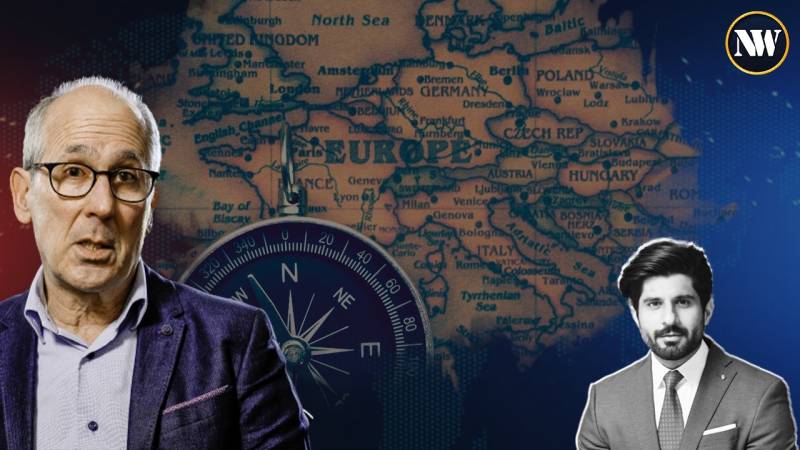In a world undergoing profound transformations, liberal democracy faces an array of challenges. The interview with Dr. Gary Gerstle, a Professor of American History at the University of Cambridge, delves into these challenges with host Asad Ejaz, offering insights into the evolving nature of history and the need for a pragmatic approach to addressing contemporary issues.
The COVID-19 pandemic laid bare the vulnerabilities within liberal democracies. While the pandemic required coordinated government responses, it also revealed the limitations of market forces in addressing public health crises. For instance, in the United States, the absence of a robust public healthcare system hindered the pandemic response. The need for government intervention became evident, as seen in the development of vaccines, healthcare infrastructure improvements, and stimulus packages to support citizens during lockdowns.
This challenges the neoliberal notion that markets can efficiently provide for all societal needs. The pandemic demonstrated that certain essential services, like healthcare and crisis management, may require government regulation and intervention to ensure equitable access and effective responses.
In a similar vein, climate change as a global challenge demands collective action. It highlights that mitigating climate change involves international cooperation, far beyond market mechanisms' capabilities. An example is the Paris Agreement, where nations committed to reducing carbon emissions. However, adhering to these commitments necessitates government regulations, subsidies for renewable energy, and incentives for sustainable practices, thus highlighting the limits of neoliberalism's reliance on market forces alone. Climate change necessitates government-led initiatives, international treaties, and regulatory measures, as the consequences of inaction extend beyond economic considerations to existential threats to humanity.
Professor Gerstle acknowledges the allure of authoritarianism in several regions. Citizens in some countries may perceive authoritarian regimes as more effective in maintaining economic stability and social order. For instance, China's remarkable economic growth under its authoritarian system has led some to question whether liberal democracy is the only path to prosperity. In many ways, this phenomenon challenges the fundamental principles of liberal democracy, raising questions about the trade-off between individual freedoms and state control. The rise of authoritarianism emphasizes the need for liberal democracies to address citizens' concerns regarding economic stability and social order while upholding democratic values.
Essentially, it is imperative to understand that history is not static but continually evolving. The idea of the "end of history," popularized by Francis Fukuyama in the early 1990s, suggested that liberal democracy had triumphed as the dominant ideology. However, subsequent developments, such as the resurgence of authoritarianism and the erosion of democratic norms, have shown that history remains dynamic. This was witnessed in the 2014 annexation of Crimea by Russia and the ongoing conflict in Ukraine. These events continue to challenge the belief that geopolitical conflicts ended with the Cold War. The evolving nature of history necessitates a flexible and adaptive approach to global challenges.
Professor Gerstle calls for a pragmatic approach to address contemporary challenges. He emphasizes the importance of adapting to changing circumstances and evidence-based decision-making. For instance, during the COVID-19 pandemic, governments worldwide had to adjust their strategies based on scientific data and public health needs, often deviating from purely ideological stances. A notable example is New Zealand's response to the pandemic. Prime Minister Jacinda Ardern's government implemented strict lockdowns, border controls, and mass testing, successfully curbing the virus's spread. This pragmatic approach prioritized public health over economic considerations, demonstrating the value of adaptable governance during crises.
As liberal democracies grapple with these issues, the importance of reevaluating policy approaches and forging a path forward that balances individual freedoms with effective governance is needed. The future of liberal democracy depends on its ability to evolve and address the pressing concerns of our time.

